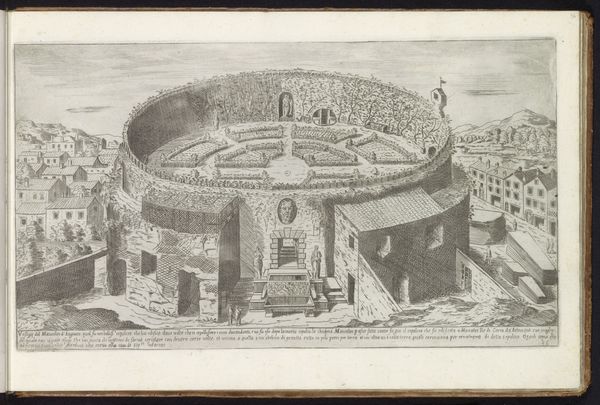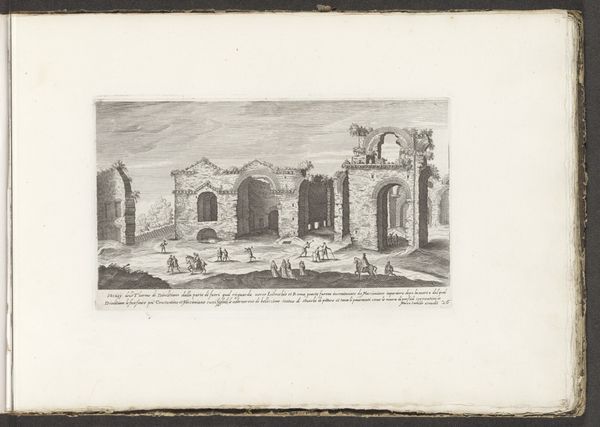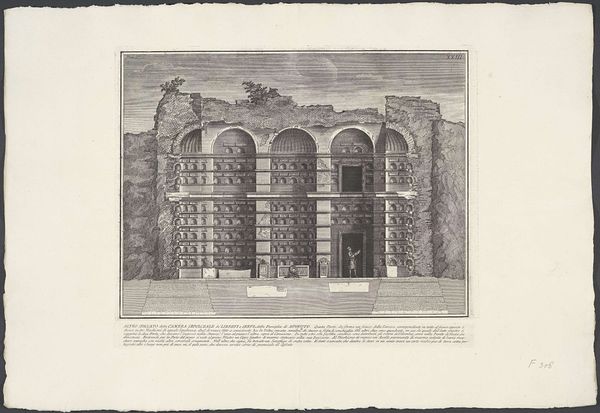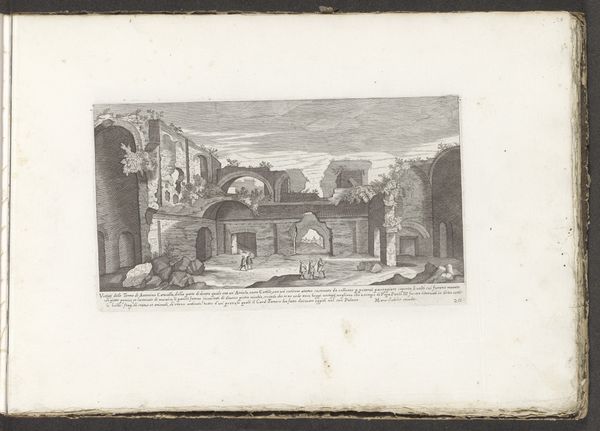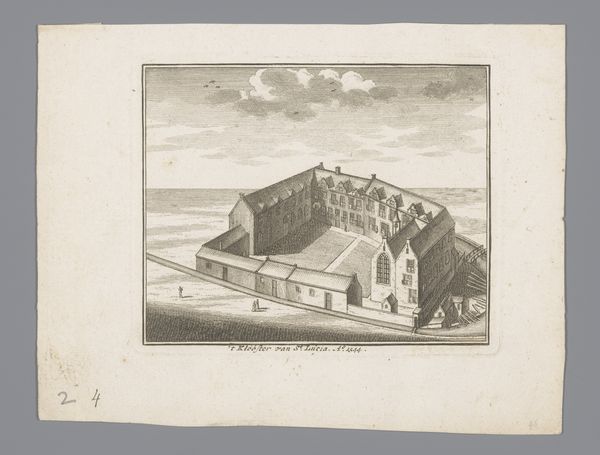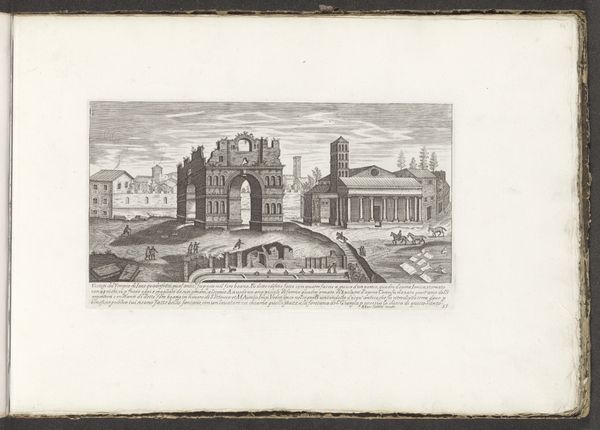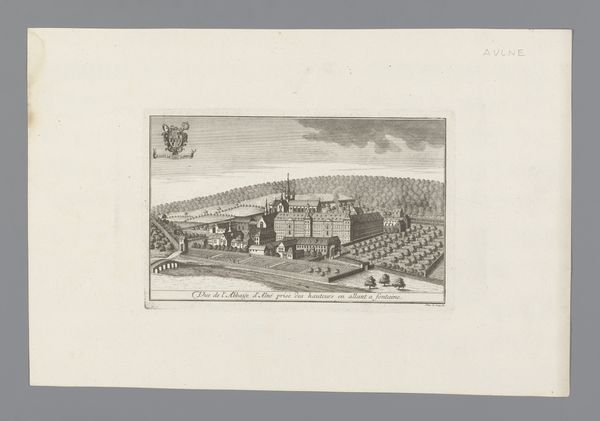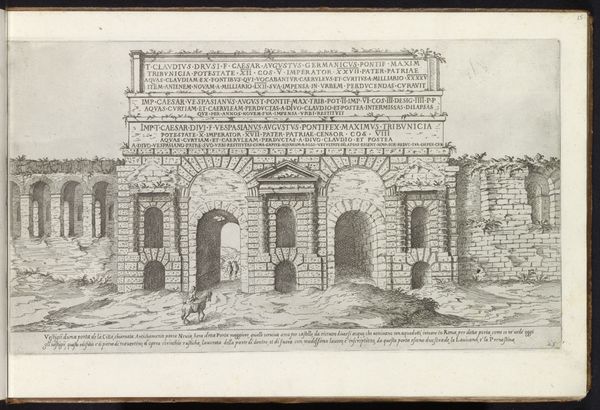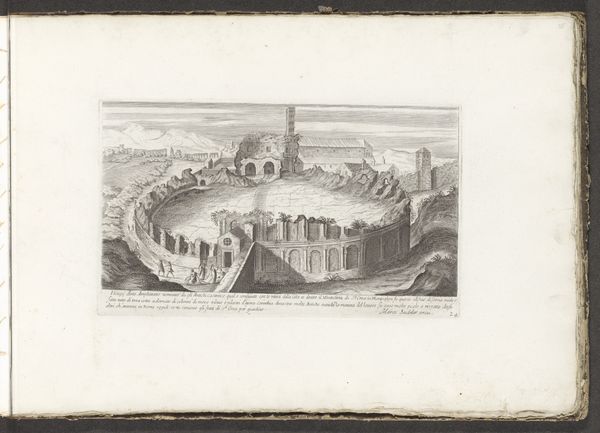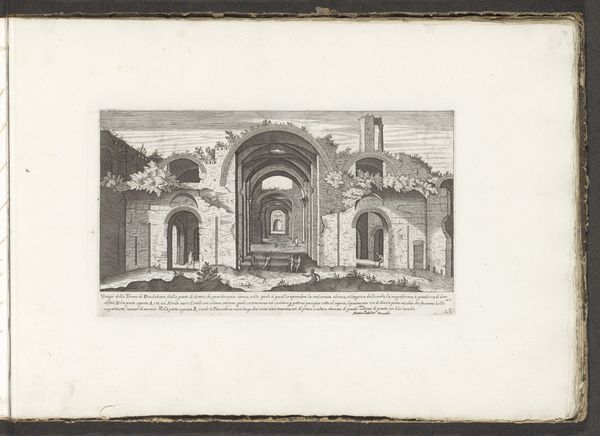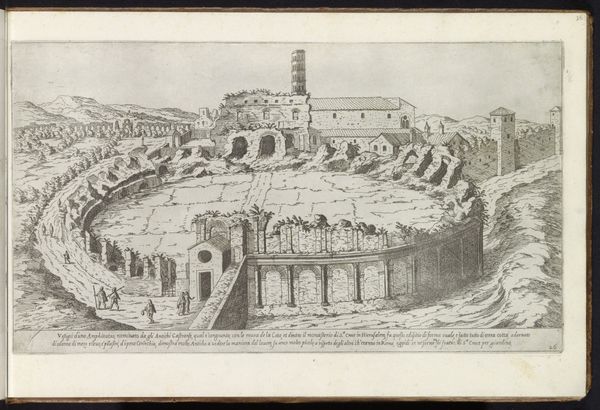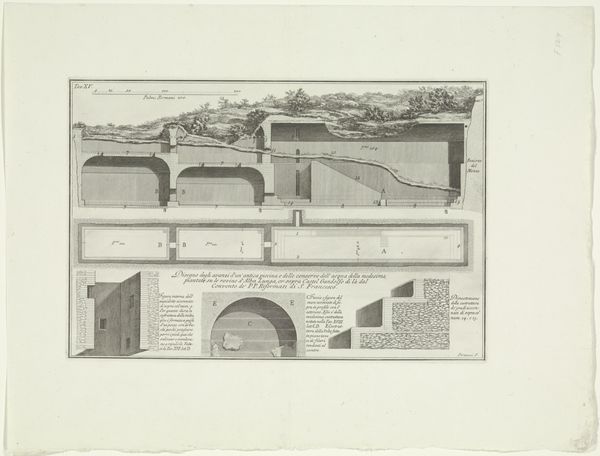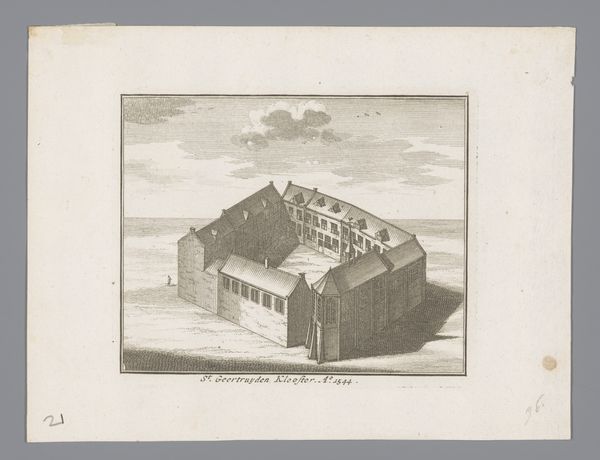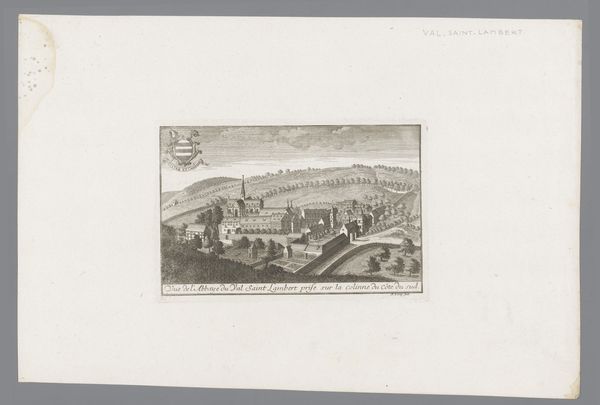
drawing, print, ink, engraving, architecture
#
drawing
#
baroque
# print
#
perspective
#
ink
#
line
#
cityscape
#
history-painting
#
engraving
#
architecture
Dimensions: height 168 mm, width 273 mm
Copyright: Rijks Museum: Open Domain
Editor: This engraving from 1680, "Mausoleum van Augustus," rendered in ink, presents a curious structure amidst what looks like a cityscape. I'm struck by how the circular form of the mausoleum contrasts with the rectilinear buildings surrounding it. What compositional elements stand out to you in this print? Curator: Immediately, the precision of line and the contrast between light and shadow assert themselves. The artist masterfully employs hatching and cross-hatching to define form, creating a tangible sense of depth. Note the circular structure itself: a closed form representing, perhaps, eternity and the eternal rest of Augustus. Consider how the architecture dominates the pictorial space, demanding our attention and acting as the primary focal point. Editor: That's interesting. The light and shadow definitely create a dramatic effect. Do you see any symbolic meaning within this stark architectural design? Curator: In viewing this piece through a formal lens, meaning is generated less through explicit symbolism and more through structural relationships. Consider the interplay between the rough texture of the aging stone and the precisely rendered architectural elements, the lines within the piece and the geometry used for architectural structures – does this convey something about the state of power, the effects of time, and the artist’s intent? Editor: It's amazing how much we can interpret just by looking at the formal qualities. Curator: Indeed. The strength of formalist analysis lies in its capacity to reveal intricate relationships embedded within the visual elements, thereby opening pathways to deeper aesthetic understanding. This focused attention rewards with unique perspective each time you study it.
Comments
No comments
Be the first to comment and join the conversation on the ultimate creative platform.
